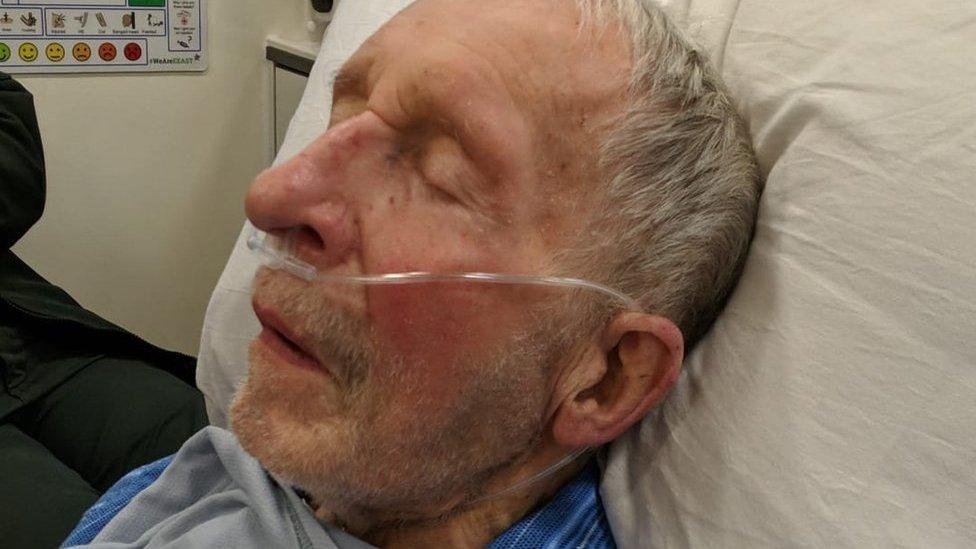Norfolk coroner warns ambulance transfer delays risk future deaths
- Published
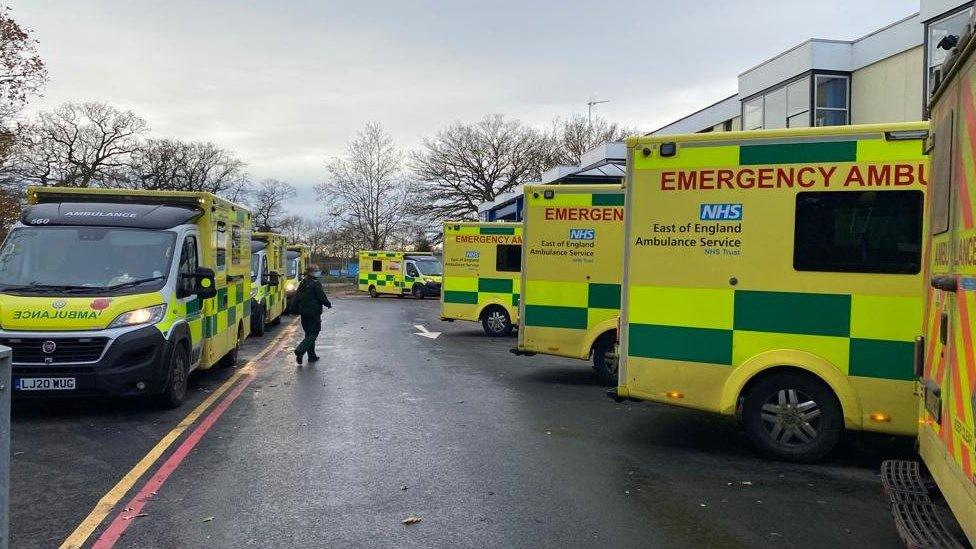
Ambulances were seen queuing outside the Queen Elizabeth Hospital on 27 December
Ambulance transfer delays caused by medically fit patients not being discharged from hospital poses a risk of future deaths, a coroner has warned.
It follows the death of Lyn Brind, 61, who waited more than four hours in an ambulance outside the Queen Elizabeth Hospital in King's Lynn in May.
Mrs Brind's condition deteriorated and she died 30 minutes after being taken to a ward, Norfolk's coroner said.
The Department of Health and Social Care said it was taking urgent action.
Coroner Jaqueline Lake warned in a Prevention of Future Deaths Report, external, addressed to the government, that ambulance delays and issues discharging medically fit patients had worsened since Mrs Brind's death.
At the inquest she concluded Mrs Brind died from cardiac failure, but her "condition was not diagnosed nor treated in a timely fashion".
'Wider and complex problem'
Evidence at the inquest heard there were "regularly too many patients in the emergency department and so ambulances cannot safely transfer patients", the coroner said.
Ms Lake said it had been heard "this was a much wider and complex problem" related to the hospital being unable to discharge medically fit patients to the community, meaning "much needed beds" remained occupied.
At the time of Mrs Brind's death on 24 May there were seven ambulances waiting to transfer patients, but by the time of the inquest this month "this had risen to 17 ambulances commonly waiting to transfer", she said.
Ms Lake added that at the time of the inquest there had been 140 beds at the hospital occupied by patients medically fit for discharge, but there were no beds available for them in the community.
While in the ambulance outside the hospital, it was said Mrs Brind's condition deteriorated and she needed oxygen, but this was not escalated to the ambulance navigator at the hospital.
She was also not assessed by a senior doctor within one hour, in line with hospital protocol, the report said.
However, the coroner said she was "satisfied" both the East of England Ambulance Service and the hospital had taken steps to address the issues.
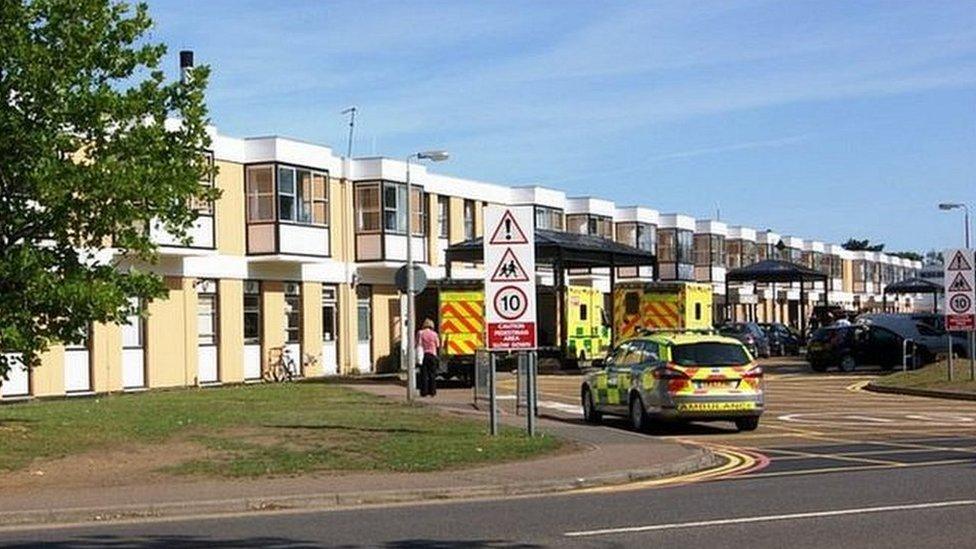
The Queen Elizabeth Hospital is in King's Lynn in west Norfolk
Helen Blanchard, interim chief nurse at the Queen Elizabeth Hospital, said it had learned lessons and implemented NHS care standards for patients waiting in ambulances.
This included making sure patients were seen by a senior doctor and 30-minute observations being carried out.
An East of England Ambulance Service spokesperson said it met with the hospital's serious incident team to "discuss lessons learned and to help prevent this from happening again".
The Department of Health and Social Care said: "No-one should be waiting longer than necessary for emergency care and we are taking urgent action to reduce waiting times."
This included investment to free up hospital beds, reduce pressure on A&E departments and ease delays in ambulance transfer times, it said.

Find BBC News: East of England on Facebook, external, Instagram, external and Twitter, external. If you have a story suggestion email eastofenglandnews@bbc.co.uk, external
Related topics
- Published13 November 2022
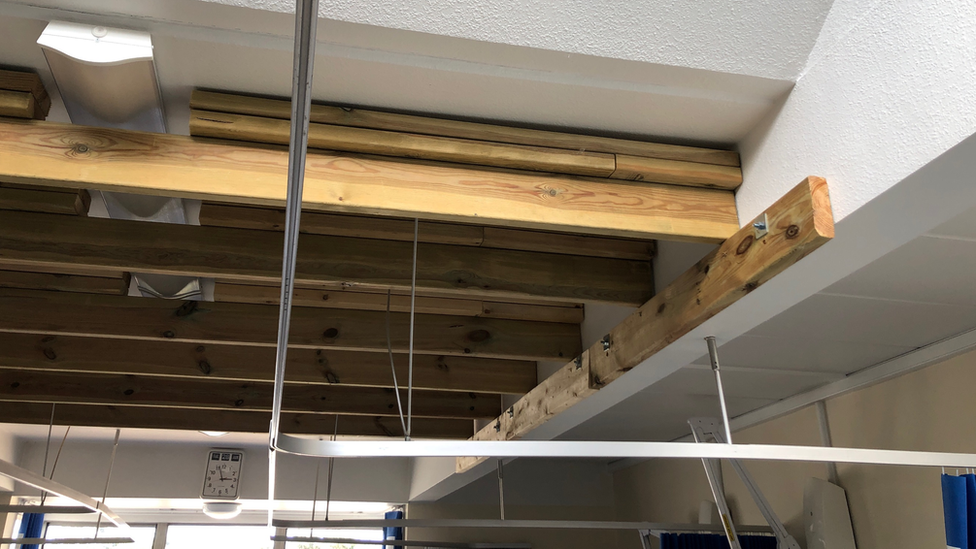
- Published30 December 2022
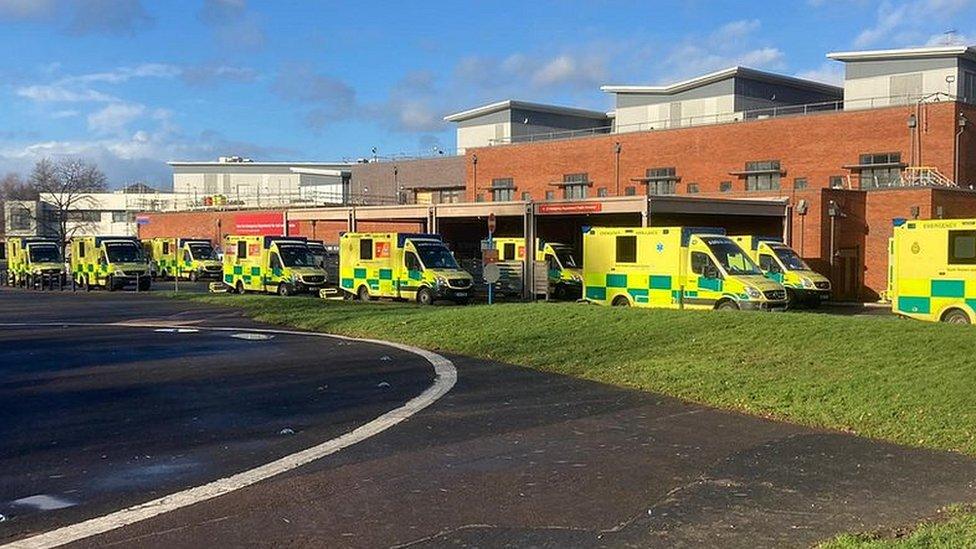
- Published24 November 2022
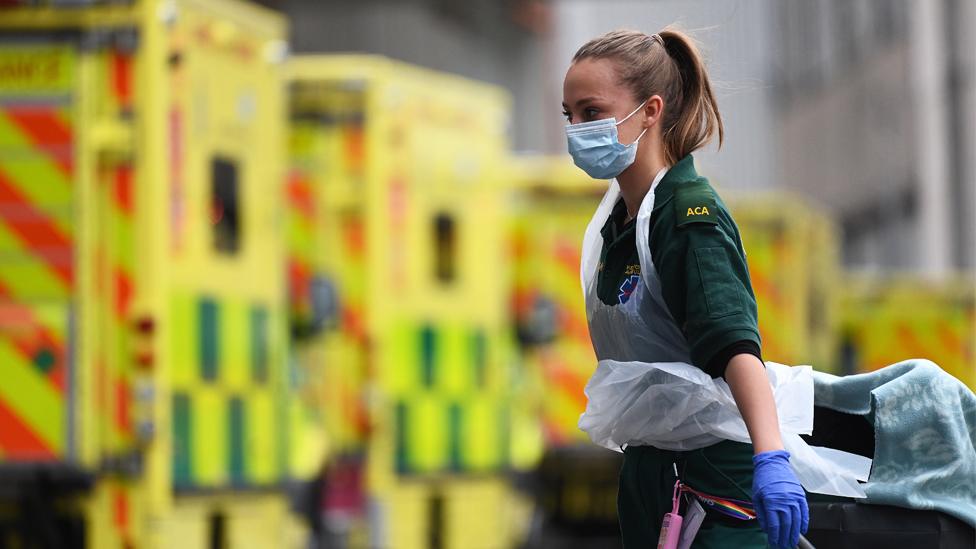
- Published21 November 2022
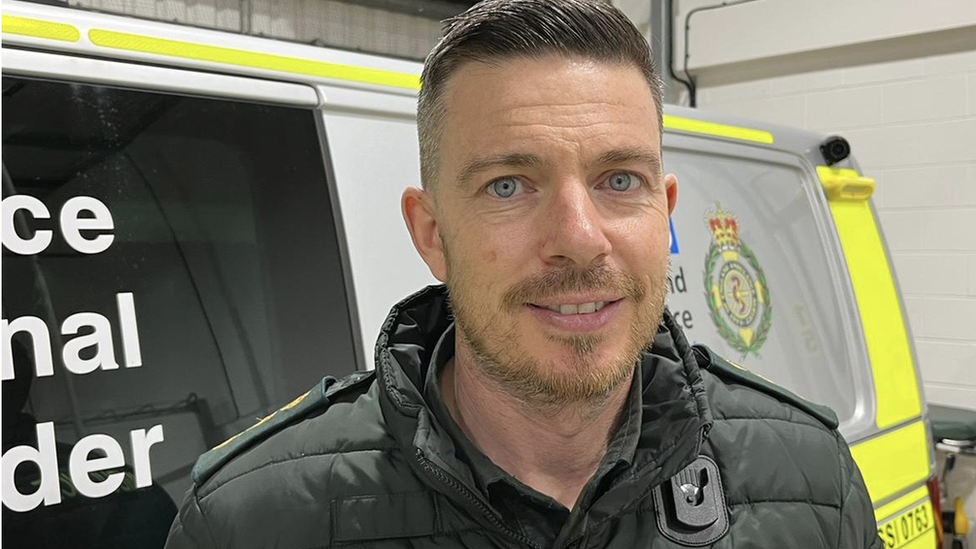
- Published4 January 2023
